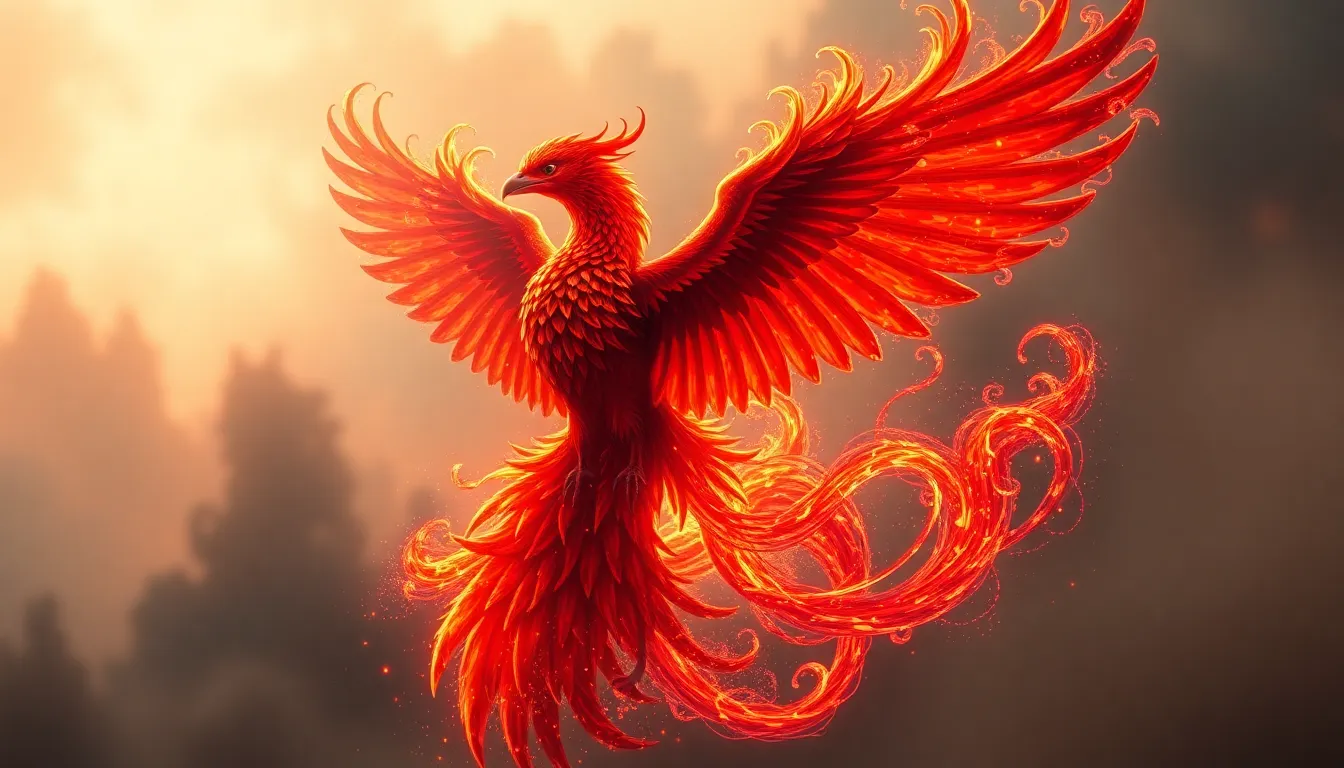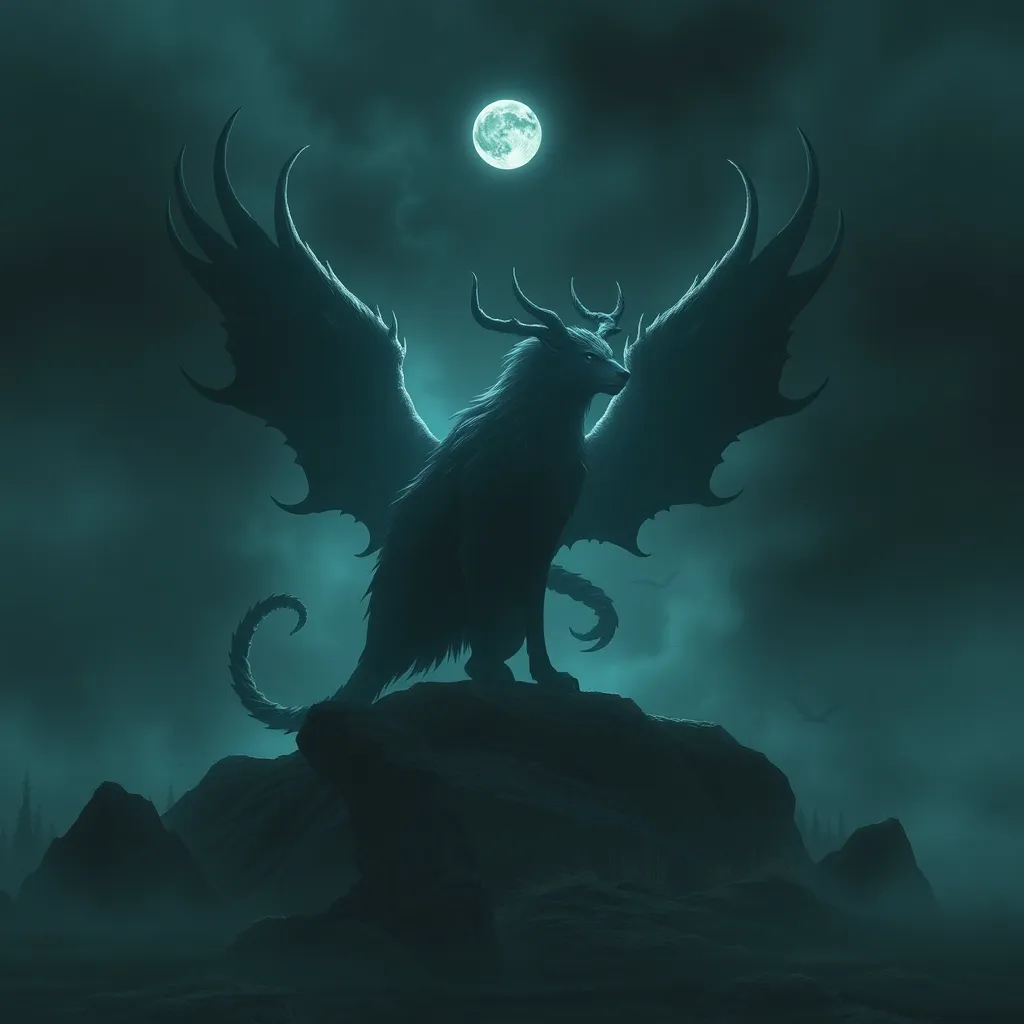The Tale of the Phoenix: A Symbol of Rebirth in Animal Myths
Introduction to the Phoenix Myth
The phoenix is a legendary bird found in various mythologies, renowned for its incredible ability to rise from its own ashes. This mythological creature symbolizes rebirth, renewal, and the cyclical nature of life. The phoenix’s story resonates with many, serving as a powerful metaphor for transformation and resilience in the face of adversity.
Historical Origins of the Phoenix Legend
The origins of the phoenix myth can be traced back to several ancient civilizations. The earliest documentation is found in Egyptian mythology, where the Bennu bird, often associated with the sun and creation, represents resurrection. Greek mythology later adopted this concept, describing the phoenix as a magnificent bird that cyclically regenerates itself.
As the myth spread across cultures, it evolved to reflect local beliefs and values. In Roman culture, the phoenix became synonymous with immortality, while in later Christian symbolism, it represented the resurrection of Christ. This evolution highlights the phoenix’s adaptability and its universal themes of life, death, and renewal.
Cultural Variations of the Phoenix
While the phoenix is predominantly recognized in Western cultures, similar symbols of rebirth exist in Eastern traditions. Two notable examples are:
- Fenghuang: In Chinese mythology, the Fenghuang, often referred to as the “Chinese phoenix,” embodies harmony and balance and is considered a symbol of high virtue and grace.
- Garuda: In Indian mythology, the Garuda, a bird-like creature, represents not only power but also the ability to rise above challenges, symbolizing liberation and enlightenment.
These parallels illustrate how various cultures interpret the concept of rebirth, each attributing unique characteristics to their respective mythical birds.
The Phoenix in Literature and Art
The phoenix has inspired countless works across literature and the arts throughout history. In ancient texts, such as Herodotus’s writings, the phoenix is described in detail, cementing its place in mythological narratives. In modern literature, authors use the phoenix to symbolize characters’ transformations and journeys, illustrating themes of resilience and hope.
In visual arts, the phoenix is depicted in various forms:
- Paintings: Artists often illustrate the phoenix in vibrant colors, emphasizing its fiery rebirth.
- Sculptures: Many sculptures capture the dynamic motion of the phoenix rising, symbolizing strength and vitality.
- Modern Media: The phoenix appears in movies and television shows, often representing characters who undergo significant transformations.
The Symbolism of Fire in the Phoenix Myth
Fire is a central element in the phoenix myth, representing both destruction and transformation. The phoenix’s life cycle involves burning itself to ashes, only to be reborn anew. This duality of fire as a destructive force and a means of renewal is reflected in various cultural narratives.
In many traditions, fire symbolizes:
- Destruction: The end of one phase, leading to the need for regeneration.
- Purification: The cleansing of the old to make way for the new.
- Transformation: The process through which one evolves into a stronger, more refined version of oneself.
The Phoenix as a Metaphor for Personal Transformation
In contemporary narratives, the phoenix serves as a powerful metaphor for personal growth and resilience. Individuals often relate to the phoenix when facing challenges, drawing inspiration from its ability to rise after falling. This symbolism is prevalent in stories of overcoming adversity, where protagonists experience profound transformations.
Some examples include:
- Literary characters who face significant trials and emerge stronger.
- Real-life stories of individuals who have overcome hardships, such as survivors of trauma or those who have reinvented themselves after failure.
The Psychological Impact of the Phoenix Myth
The phoenix myth also holds psychological significance. In psychology, it represents the process of rebirth and regeneration, aligning with concepts of personal development and healing. The imagery of the phoenix encourages individuals to embrace change and view challenges as opportunities for growth.
Therapeutically, the phoenix can symbolize:
- Resilience: The ability to bounce back from setbacks.
- Hope: The belief in the possibility of renewal and a brighter future.
- Identity Transformation: The journey of discovering one’s true self after overcoming difficulties.
The Phoenix in Popular Culture
The phoenix’s influence extends into popular culture, where it appears in various forms of entertainment. From movies like “Harry Potter” featuring Fawkes, the phoenix, to video games that incorporate phoenix-like creatures, its symbolism continues to thrive in contemporary storytelling.
This enduring legacy showcases the phoenix as a powerful archetype, embodying themes of hope, resilience, and the cyclical nature of life. Its presence in popular culture serves as a reminder of the potential for renewal and transformation.
Lessons from the Phoenix: Embracing Change and Renewal
The tale of the phoenix offers valuable lessons applicable to modern life. Key takeaways include:
- Embracing change: Change is a natural part of life, and like the phoenix, individuals can find strength in transformation.
- Resilience: The ability to rise after falling is a testament to human strength and perseverance.
- Hope: The promise of renewal inspires individuals to maintain hope, even in the darkest times.
Conclusion: The Enduring Legacy of the Phoenix
In conclusion, the phoenix stands as a powerful symbol of rebirth in animal myths, transcending cultures and time periods. Its story resonates deeply within the human experience, reflecting our struggles, triumphs, and the eternal cycle of life. By understanding the phoenix’s significance, we can appreciate the importance of myths in exploring our emotions and experiences, ultimately encouraging a mindset of resilience and adaptability.




